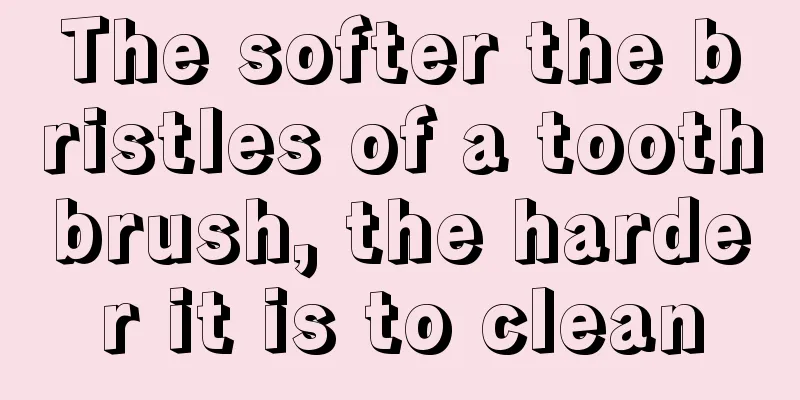I want to go to the toilet after drinking a little water

|
We all know that kidneys are very important to humans. The kidneys are responsible for the body's reabsorption and excretion processes. Therefore, people with unhealthy kidneys often have unhealthy bodies. Some people often have frequent urination. They often go to the toilet many times a day and want to go to the toilet as soon as they drink water. These people's kidneys generally do not absorb food well. So their bodies are relatively weak. So what should you do if you want to go to the toilet after drinking a little water? A normal adult urinates an average of 4 to 6 times a day during the day and 0 to 2 times at night after going to bed; an infant urinates 20 to 30 times during the day and night. If the frequency of urination increases significantly and exceeds the above range, it is frequent urination. Causes 1. Increased urine volume: When urine volume increases, the frequency of urination will also increase accordingly. Under physiological conditions, such as drinking a lot of water, eating watermelon, and drinking beer, due to the increase in water intake, the urine volume increases through the regulation and filtering function of the kidneys, and the frequency of urination also increases, resulting in frequent urination. Under pathological conditions, such as some patients with diabetes and diabetes insipidus, they drink a lot of water, urinate a lot, and urinate frequently, but they do not feel any discomfort when urinating. 2. Inflammatory stimulation: When there is inflammation in the bladder, the urinary center is in an excited state, resulting in frequent urination and reduced urine volume. Therefore, frequent urination is an important symptom of cystitis, especially in acute cystitis and tuberculous cystitis. Other conditions such as prostatitis, urethritis, pyelonephritis, chronic balanoposthitis in children, and vulvitis can also cause frequent urination. Under the stimulation of inflammation, frequent urination, urgency and pain often occur at the same time, which is called urinary tract irritation syndrome, commonly known as "triuria". 3. Non-inflammatory stimulation: such as urinary stones and foreign bodies, usually with frequent urination as the main manifestation. 4. Reduced bladder capacity: such as bladder space-occupying lesions, compression from the enlarged uterus during pregnancy, tuberculous bladder contracture, or large bladder stones. 5. Psychoneural frequent urination: Frequent urination only occurs during the day or before falling asleep at night. It is often caused by mental tension or occurs in patients with hysteria. This may also be accompanied by urinary urgency and pain. |
<<: How tiring it is to be together with people who have different values
>>: Can glass bottles be frozen in the refrigerator?
Recommend
How to see the treatment effect of liver cancer? How to eat nutritiously after radiotherapy and chemotherapy for liver cancer
In the process of continuous treatment of liver c...
What are the most powerful detoxifying foods?
We often see some detoxification and beauty capsu...
Tips to get rid of red bloodshot eyes
People who often stay up late are prone to red bl...
What are the taboos in acupuncture
Acupuncture is a very common way to treat disease...
Which plant has the best smoking smell
Visiting relatives and friends is inevitable duri...
Is vomiting after eating a full meal a sign of early-stage gastric cancer?
The feeling of vomiting after eating does not nec...
How to clean clothes stained with marker pen
Everyone should be very familiar with marker pens...
Understand what symptoms appear when liver cancer occurs?
Many people want to know the symptoms of liver ca...
The best way to lower uric acid, a clever way to tell you
There are many disadvantages of high uric acid, s...
What is the normal ratio of albumin to globulin
The structure of the human body is very complex. ...
The best treatment for ventricular tachycardia
What is the best treatment for ventricular tachyc...
What are the effects of sodium hyaluronate
As we get older, various systems in our body will...
Can headstand help lose weight
In life, many people blindly pursue weight loss. ...
Eating less pickled food can reduce the risk of stomach cancer
In recent years, gastric cancer has become a majo...
What are the B-ultrasound manifestations of small liver cancer? How to treat small liver cancer effectively?
Small liver cancer is an oncology disease. This d...









